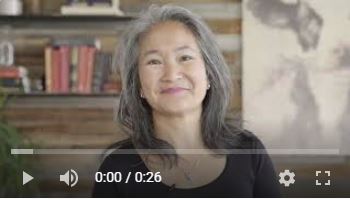1. What are the benefits of resolving our conflicts through mediation instead of going to court for our disputes?
Mediation is a private process that is much cheaper than going to court. Many times, the judge might order you to attend mediation so that parties can fully understand the situation on what led to your conflicts. After listening to each other, we will explore some alternative options and hopefully you will be able to come up with a solution that meet both your needs and interest. Just know that your decision “to settle or not” is completely voluntary. What the courts found over the years is that it is much more impactful when parties can come up with their own resolution instead of having the judge make one for you.
2. What is the role of a mediator?
My role as your mediator is to facilitate the mediation process and discussion. I am impartial and will not provide legal advice to the parties. In addition, our discussion will be confidential. I usually tell my clients, “What happened in mediation STAYS in mediation.” In other words, parties cannot share it with anyone outside of mediation even in courts.
3. Who selects the mediator?

The parties mutually agree to select the mediator. If no agreement is made, then the court often selects a mediator on your behalf.
4. Are we required to reach an agreement in mediation?

No, your decision whether to reach an agreement is completely voluntary. If parties are unable to come to an alternative resolution, then you may withdraw from mediation. I will then provide you a “Certificate of Mediation” to show the court that you attended mediation and that parties prefer the court to make decision in regards to your disputes.
5. Who makes the decisions in mediation?
While the mediator facilitates the discussion, the parties are the ones who make decisions in mediation, NOT the mediator. In regard to the mediation process, each party will describe the situation that led to your conflict. We will then identify the issues, your needs and interests as it relates to the dispute, and then explore alternative options. If parties can resolve the issues in mediation, then as your mediator, I will draft the agreement in a Stipulation, or Memorandum of Understanding (MOU).
6. Will we have a chance to seek advice from anyone during mediation?

Yes, you may talk to your family, friends, lawyer, or financial advisor while in mediation.
7. Can we have mediation without being in the same room? I don’t want to be in the same room with the other party.

Yes, when conflict is high, as your mediator, I can put parties in two different rooms and will talk with each party in private. I will then shuttle back and forth between rooms to present what the other party offers. If you need this special arrangement, please inform your mediator PRIOR to the mediation.
8. Do we have to have an attorney for us to attend mediation?

No, you are not required to have an attorney to participate in mediation. However, if you have an attorney, I suggest that your attorney will come to mediation with you to give you legal advice. Please keep in mind that even if your mediator has legal background as a lawyer, the mediators are NOT allowed to give you legal advice.
9. What happens if we don’t reach an agreement during mediation?

If parties are unable to reach an agreement during mediation, then you may withdraw from mediation. I will then provide you a “Certificate of Mediation” to show the court that you attended mediation and that parties prefer the court to resolve your disputes. When parties have a scheduled hearing before the court, each party will present the arguments, and the court will then give you the final decision.
10. Can I bring someone with me to mediation?
Yes, you may bring someone with you to mediation. However, the other party must permit your guest to sit with you in the mediation room.
11. For family cases (parenting plan, maintenance, child support), what documents do we need to bring to mediation?
So that we can have an effective mediation, please bring the following documents to the meeting:
- Any court orders, financial documents, and other information pertaining to the dispute.
- Documentation of your income and a completed Financial Affidavit, if child support or maintenance is an issue.
- List of issues you want to resolve during mediation and identify your needs and interests in relation to these issues.
- Review what you understand to be the needs and interests of the opposing party.
If you have further questions prior to your mediation session, please call my office at (720)432-6861. I look forward to working with you!